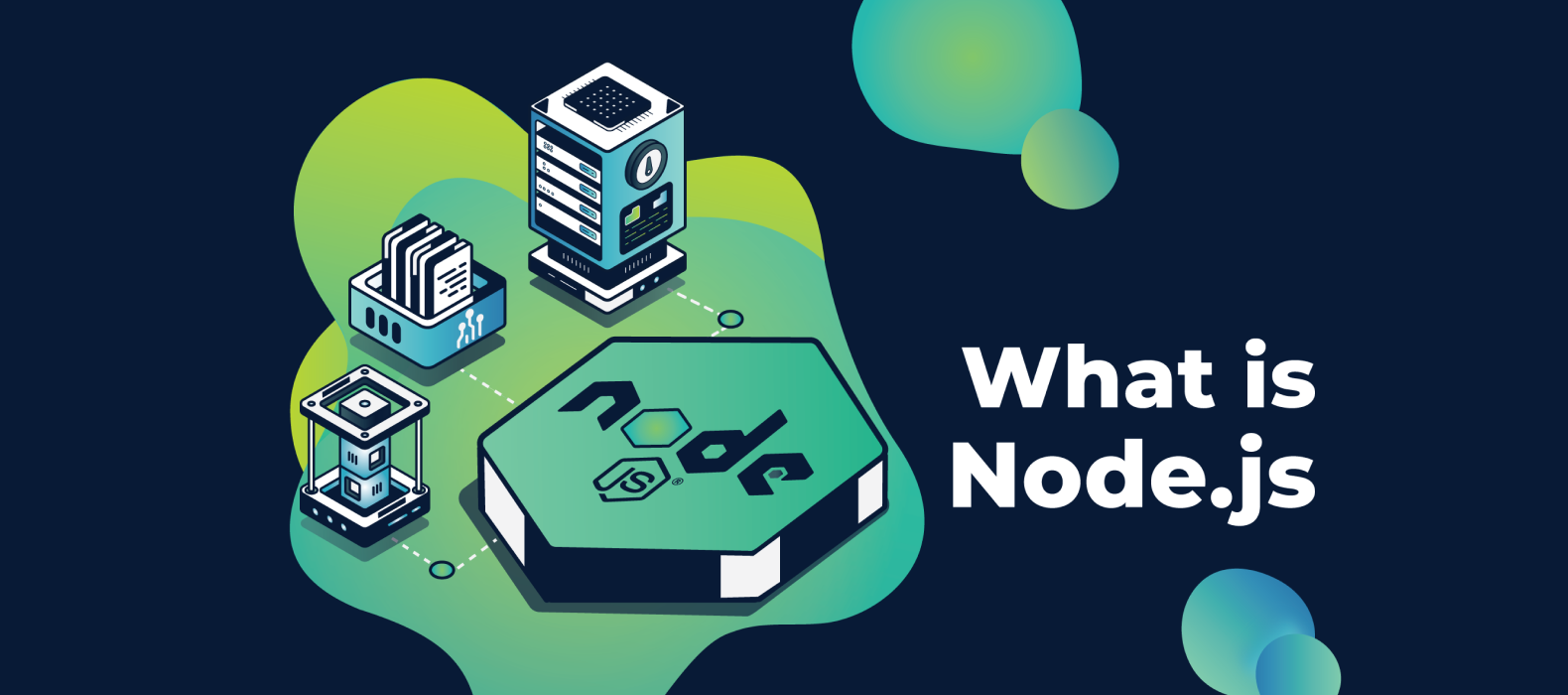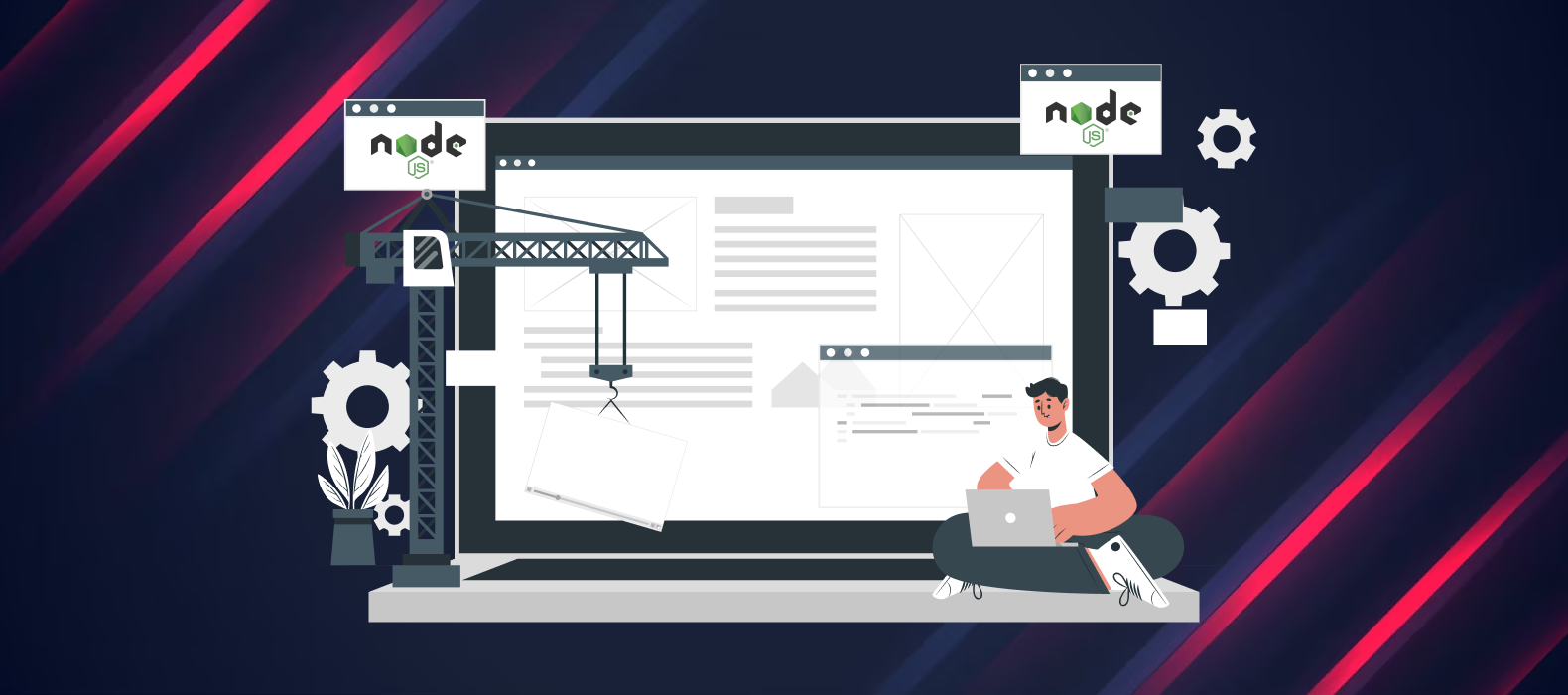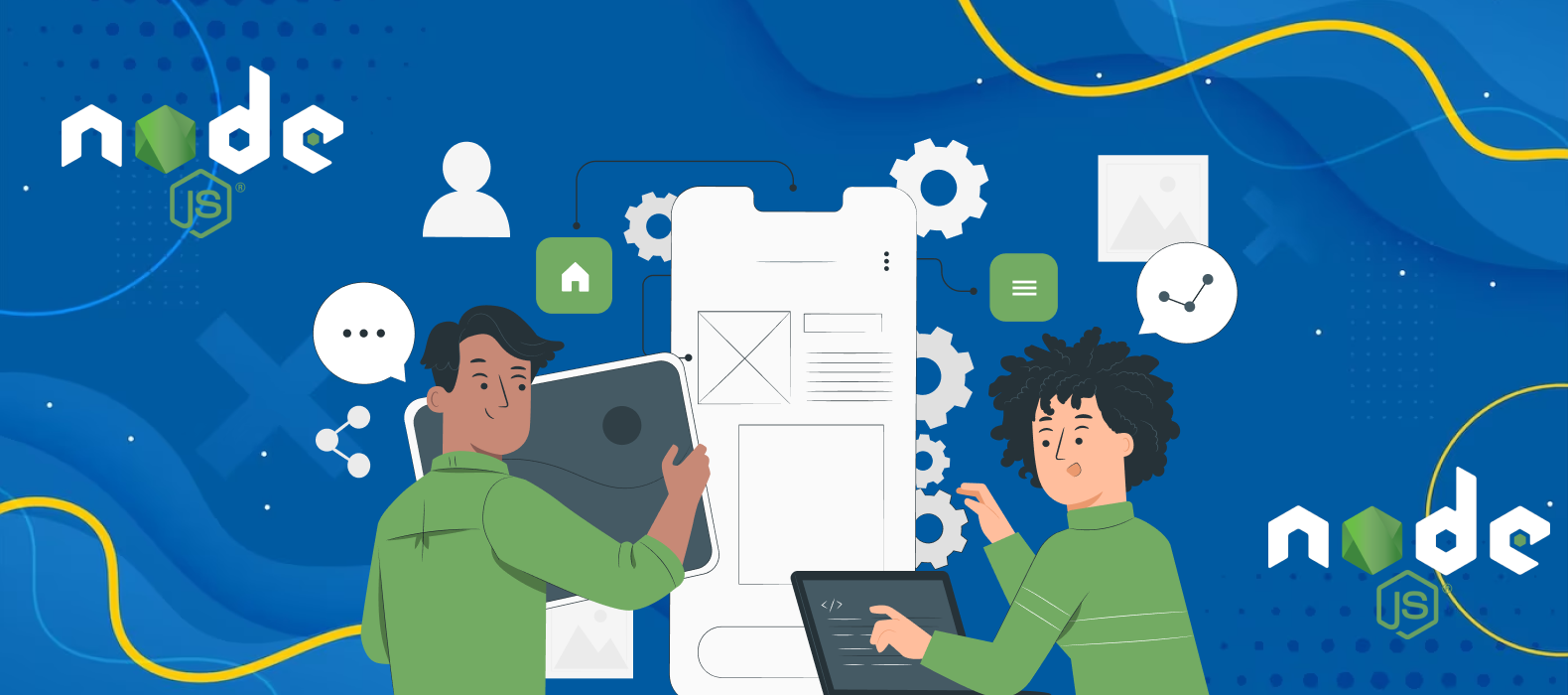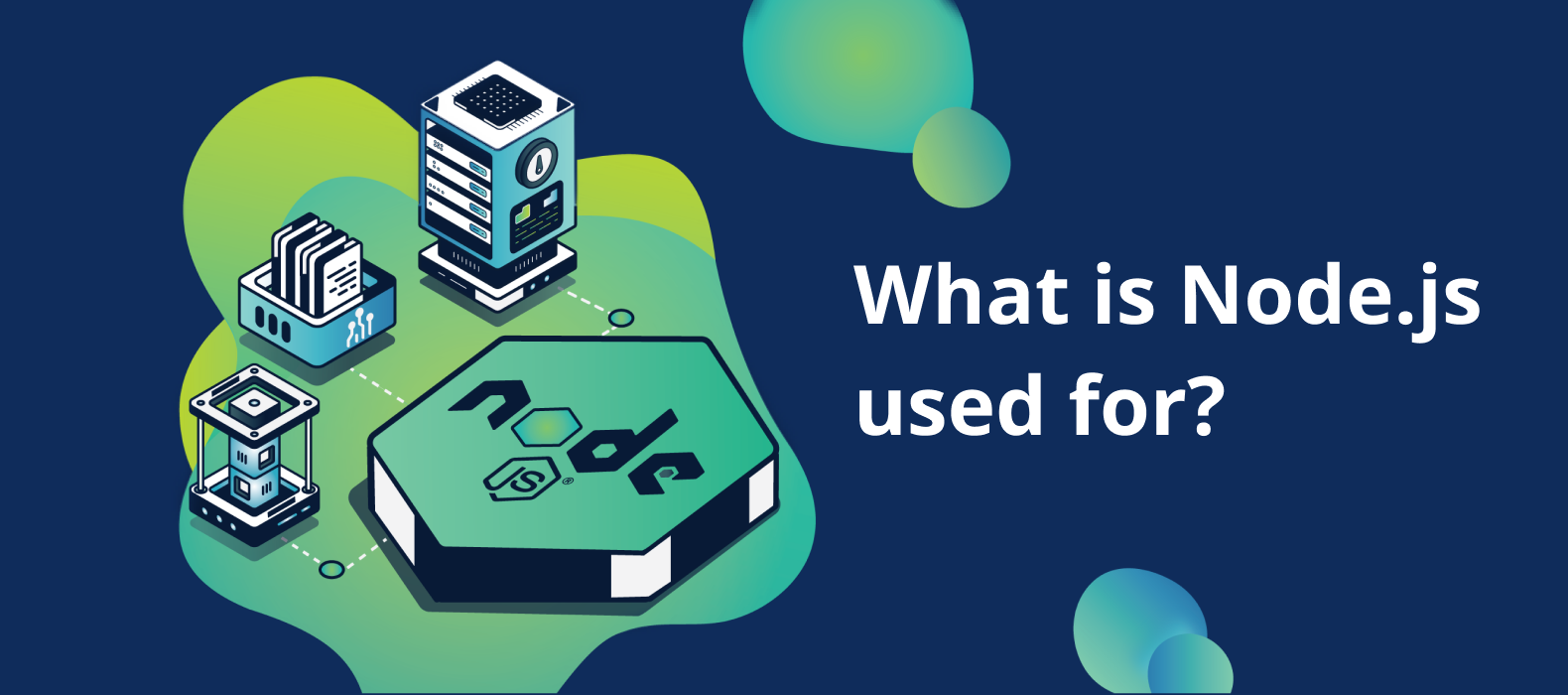What is the use of NodeJS in Web Development?10 Best Benefits of Node.js Development
What benefits come with using NodeJS in web development? Examine the advantages of developing web applications with Node.js.
JavaScript features have long dominated frontend web development. Most websites, including Google, Facebook, Wikipedia, and others, employ JS for client-side activities. Cross-platform mobile development has recently been a basic technology in hybrid tools like React Native, NativeScript, Apache Cordova, and others.
Node.js has expanded into backend development over the past few years as well. Without learning a new language for server-side development, developers want to leverage the same tech stack throughout the full web project. Node.js is a tool that converts the syntax and functionality of JS for the backend.
According to a recent statistic, 49.9% of developers worldwide utilise node.js to build web development projects.
Although it has great performance and scalability, there are several benefits that you should take into account before beginning development.
To help you decide whether to use NodeJS in web development for your upcoming project, we will examine both the pros and cons of developing web apps with Node.JS in this blog post.
Let’s start the ball rolling!
What is Node.js?

Node.js is an open-source, cross-platform, server-side runtime environment for executing JavaScript code. It was developed by Ryan Dahl in 2009 and is built on the V8 JavaScript engine used in Google Chrome. NodeJS in web development allows developers to use JavaScript in web browsers and on the server side, making it possible to build scalable and high-performance web applications using a single programming language.
Node.js provides several built-in modules that make it easy to implement various server-side functionalities, such as handling HTTP requests, working with file systems, and communicating with databases. It also has a large and vibrant ecosystem of third-party packages and libraries available through its package manager, npm.
Node.js is particularly popular for building real-time applications like chat apps, gaming platforms, and collaborative tools. It is also widely used for building APIs and serverless functions. Due to its event-driven, non-blocking I/O model, Node.js can handle many concurrent connections with high throughput and low latency.
Here are two things you should know before moving forward:
- Node.js is an environment for programmers, not a programming language or framework.
- Contrary to popular belief, Node.js can be utilised on both the front and back end of a website.
Pros and Cons of Node.js
| Pros | Cons |
| Rich tech stack | API is unstable |
| One programming language, i.e. Java | Not suitable for heavy computing apps |
| Easy Scalability | Lack of library support |
| Concurrent request handling | Immaturity of tools |
What is the use of Node.js in Web Development?

Node.js is a popular runtime environment that allows developers to run JavaScript code on the server side. It’s useful NodeJS in web development because it enables developers to use a single language, JavaScript, for a client- and server-side development.
Here are some of the main uses of NodeJS in web development:
1. Backend web development:
Node.js can be used to create server-side applications and APIs for web and mobile applications. Its event-driven, non-blocking I/O model is ideal for building high-performance, scalable server applications.
2. Real-time applications:
NodeJS in web development is well-suited for building real-time applications, such as chat applications, multiplayer games, and collaborative tools, because it enables developers to send and receive real-time data over a single connection.
3. JavaScript ecosystem:
Node.js has a large and growing ecosystem of third-party modules and packages that can be easily installed and integrated into web applications. This makes it easy for developers to add new application features and functionality.
4. Frontend development:
NodeJS in web development can also be used for frontend development, specifically with tools like webpack and Babel that enable developers to use modern JavaScript features and transpile them for older browsers.
Overall, Node.js is a powerful tool for web development because it enables developers to build high-performance, scalable, and real-time applications using a single language, JavaScript.
Benefits of Node.js Development

Now that you are familiar with Node.js and its applications, we can talk about the benefits of NodeJS in web development.
Companies have been actively switching their backend tech stacks to Node.js. Node.js was chosen over Ruby on Rails because it was better able to handle growing workloads and allowed LinkedIn to reduce the number of servers tenfold. However, they converted to a microservices approach, as did Netflix and PayPal. Let’s examine a few benefits of utilising Node.js for software and web app development.
1. High Performance:
Node Js’ greatest asset is its fast performance for real-time applications. It’s a benefit of NodeJS for accelerated apps. Node. Js-based application frameworks may easily handle a variety of jobs. Despite the difficulty and expense of incorporating a single processor, the IPsec architecture is highly scalable and enables IPSec to perform concurrent queries without clogging Memory. Its event-linked and non-blockable operation allows for quicker code execution that impacts performance. To outperform its rivals, GoDaddy has used Nodejs.
2. Scalability:
Since it is explicitly stated in its name, Node.js was created with scalability in mind. Several nodes can operate concurrently and communicate with one another in this context. There are several explanations for why Node.js’s scalability outperforms other online backend development tools.
A clustering module in Node.js is responsible for load balancing each active CPU core. You can run numerous nodes simultaneously, and the environment automatically balances the workload. This is just one of the many advantages of NodeJS in web development modules.
Node.js supports horizontal partitioning, allowing you to divide your app into various instances. You present a distinct version of the app based on each user’s age, hobbies, geography, language, and other factors. The workload is reduced while personalisation is increased. Node does this by using child processes, which quickly communicate with one another and have a common origin.
Moreover, Node’s non-blocking request processing technology adds to its high speed by enabling apps to handle hundreds of requests simultaneously.
3. Boosts development speed:
With its flexible and lightweight tools, NodeJS in web development enables app developers to expedite development. The npm registry provides a wide range of tools, frameworks, and modules that can be used to build web projects with more efficiency. Because of its reusable templates, Node.js and npm libraries help you reduce problems and shrink the size of your online application. This improvement directly impacts the time to market.
4. Flexible:
NodeJS in web development also have the advantage of flexibility. When a Node Js update is rolled out, that specific Node is affected. It only needs a change to the Node, unlike other runtime conditions or structures that could need you to make changes as far back as feasible in the core programming. The best aspect is that trading data between clients and web servers is unquestionably possible when you combine JSON with Node Js.
5. Powerful tech stack:
First and foremost, Node.js’ JavaScript roots make it a preferred environment for web development. It now has the most users, many free tools, and a vibrant community. Because of its link to JS, Node.js swiftly gained popularity; currently, it has more than 368 million downloads and thousands of free utilities in the package module.
Node.js not only gained popularity but also inherited the key JS benefits:
- Rapid data processing and performance;
- Extremely reusable code;
- The code is simple to understand, write, maintain, and learn;
- Thousands of free guides, a sizable library of resources, and a vibrant community.
Moreover, it’s a component of the well-known MEAN tech stack, which combines the four technologies MongoDB, Express.js, Angular, and Node.js to handle every important aspect of web app development.
6. Helps in forming cross-functional teams:
Consider hiring two independent teams to create and test high-quality initiatives. Each team would work independently, and its remit would be limited to a few key areas. Even when everything appears flawless, there is a significant communication gap between these teams, which can lead to several flaws in your product.
Does that make it challenging? NodeJS has a remedy. Node.js’s whole stack will assist you in assembling a product development team. It offers a more wholesome working atmosphere that enables addressing and fixing your problems efficiently.
7. Appropriate Efficiency for Microservice Development:
The popularity of Node.js has increased for another reason. The environment is perfect for the creation of microservices.
NodeJS in web development is one of the fastest data processing technologies available, essential for the swift communication between microservices. One of the most crucial aspects of Node.js for application development is its non-blocking algorithms.
Without waiting for the first request to finish, Node.js can handle several requests concurrently. Several microservices can receive and reply simultaneously to messages sent across them all.
8. IoT Mobile Apps:
Node Js usage in IoT applications is something that many people are arguing about. IoT represents the technological frontier and the fifth industrial revolution. Businesses need unified IoT software to manage connected devices, sensors, and equipment with IoT’s interface. Other programming languages, including Java, Python, C++, and Ruby, can be utilised in IoT, but not all are as effective as JavaScript.
IoT mobile apps are typically developed using Node Js because they connect with IoT protocols, offer better performance, data safety, and protected authentication, and simplify creating API for these apps.
9. Provides Community Support To Simplify Development:
The Node.JS community provides specialised knowledge for tackling any challenging software project to millions of developers worldwide. The biggest package management registry on the planet is NPM, a JavaScript package management tool. For any project, you can use a variety of resources. On GitHub, you may also find a sizable collection of resources built on developer-written code that aims to increase flexibility while cutting expenses.
10. Single programming language:
NodeJS in web development delivers a mix of related frontend and backend Javascript languages. Contrary to what it may seem, it is more adaptable and accessible. It makes the entire web app development cycle reliable and smooth for developers and businesses. Time, effort, and resource savings make labour investments more fruitful and profitable. Web app development is now more convenient than ever due to Node.js, making it the most popular technology.
What is Node.js used for?

JavaScript is now the full-stack technology of choice for creating web applications due to Node.js. There are several applications where speed is crucial, including social networks, gaming apps, live chats, forums, stock market software, and ad servers. Node.js is the go-to solution for data-intensive, real-time IoT devices and apps because it is quick and scalable.
Node.js performs well for encoding and transmitting video and music, uploading numerous files, and data streaming because of its non-blocking architecture. The latter could be incredibly helpful for travel industry software since it requires data sourcing from many APIs of various vendors.
In recent years, enterprise-level software has aggressively used NodeJS in web development. While much debate exists, many significant businesses and international institutions, including Capital One and NASA, have already embraced Node.js. With technologies like IBM API Connect, Triton by Joyent, N|Solid by NodeSource, Red Hat OpenShift, Trace by RisingStack, and others, the corporate Node.js ecosystem is also still growing.
With all the listed benefits and drawbacks, it is clear that NodeJS in web developments is not a perfect solution. But Java isn’t, either. PHP or the Net framework. Yet, each of the above technologies excels in particular situations. These are real-time apps for Node.js that have a high I/O demand and necessitate performance and scalability.
Final Words
NodeJS in web development is a flexible and useful technology for creating dynamic web applications, and it offers more benefits than drawbacks. The capabilities of JS apps have been expanded, and they can now be used for both frontend and backend servers. In this way, it demonstrates why it’s a great option in the current web-building market.
As you now have a greater understanding of the technology, you can understand how to use node.Js can give you several unique advantages that will help you build complex web apps.
You can also employ any of the top Node.js development companies to build an effective web application for your company and make a lasting impression in your industry.
FAQs
Question 1: What is Node.js?
Node.js is an independent runtime environment rather than merely a library or framework. It depends on Chrome’s V8, a JavaScript engine capable of running application code independently of the operating system or browser type. Node.js is considered a standalone application on any machine because of its independence.
Question 2: What Makes Node JS the Best Backend Technology?
Although NodeJS in web development can be used for a web application’s front and back end, it is employed here. Developers like Node Js for backend development because of its scalable and adaptable framework. Moreover, it can manage multiple connection requests simultaneously and supports real-time communication, making it a superior choice for the backend.
Question 3: Why Is Node JS Preferable for Corporate Applications?
It is a fantastic choice for enterprise apps due to its capacity to handle multiple connection requests concurrently and efficiency in both the front and back ends. Another justification for using it in developing enterprise applications is its reactive nature and non-blocking IO. Moreover, Node Js makes it simpler to study and construct these apps.
Question 4: What is the objective of Node.js?
You have an advantage over your rivals if you use NodeJS in web development based business solutions. Node.js has the following use cases:
- Backend for social media networking
- Single-page application
- Chat application
- Data streaming
- IoT application




